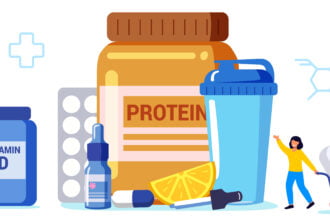 I attended the Patient Experience, Empathy and Innovation Summit hosted by the Cleveland Clinic in May.
I attended the Patient Experience, Empathy and Innovation Summit hosted by the Cleveland Clinic in May.
 I attended the Patient Experience, Empathy and Innovation Summit hosted by the Cleveland Clinic in May. Sessions covered a wide range of topics, including insight into how technology such as wearables, apps, and greater access to information about patients is influencing the delivery of care, and with it, the experience of care by patients. At the end of the day it was clear, engaging with patients honestly and with empathy, and inviting them to participate in the care they are to receive will never go out of style. It is encouraging to see the renewed focus and importance placed on the power of what have long been viewed as the “soft skills” of medicine. There are many of us, including an increasing body of research, who understand the healing properties of touch, a smile or a kind word to help reframe a healthcare encounter. What truly made the content shared in Cleveland come to life, however, was viewing it all through the lens of a conversation I had with a close friend who recently went through treatment for breast cancer.
I attended the Patient Experience, Empathy and Innovation Summit hosted by the Cleveland Clinic in May. Sessions covered a wide range of topics, including insight into how technology such as wearables, apps, and greater access to information about patients is influencing the delivery of care, and with it, the experience of care by patients. At the end of the day it was clear, engaging with patients honestly and with empathy, and inviting them to participate in the care they are to receive will never go out of style. It is encouraging to see the renewed focus and importance placed on the power of what have long been viewed as the “soft skills” of medicine. There are many of us, including an increasing body of research, who understand the healing properties of touch, a smile or a kind word to help reframe a healthcare encounter. What truly made the content shared in Cleveland come to life, however, was viewing it all through the lens of a conversation I had with a close friend who recently went through treatment for breast cancer.
I am most happy to report that my friend is now almost two years cancer free. With a family history that is all too weighted in favor of a recurrence, she is taking each day as a gift while at the same time remaining vigilant of every new ache or pain. When she was first “discharged” from treatment last year, she expressed dismay at how quickly and easily her “care team” said goodbye and good luck. With no more follow up visits to an oncologist or surgeon, and no more chemo or radiation appointments to attend, she also had no one regularly monitoring a disease that had taken the life of both her sister and mother. With no one holding some type of medical authority to give her a reassuring touch on the arm, or an all-clear from regular blood work, she has been left to wonder what the future holds alone. And I was left to wonder how post-cancer care can be so lacking in empathy for a patient, a person, who just experienced one of life’s most challenging events.
In the last six months, my friend moved from the often cold, unfriendly confines of the Chicago area for the warm, inviting sunshine she had left five years prior. When she arrived back in her adopted home town, she also needed a follow-up surgery as a result of infection from her implant resting on radiated breast tissue after the double mastectomy she had opted for in hopes of beating her odds of recurrence. This immediately put her in contact with a new breast cancer care team–one I can talk about without quotation marks because she is giving them high marks. She loves her new hospital, surgeon and everyone she has had to work with to get through this next health and life milestone. When I asked her why the care was so much better in her new environment, she shared the following:
They just seem to care so much more. It’s as simple as the gowns. Here the gowns are warm, soft and pink. When I would go to put a gown on at the old place, is was scratchy, cold and old, barely covered me and often tied in knots. I would sit there trying to untie knots in the gowns and get frustrated.
The image of my friend sitting alone, uncovered, frightened of what her future holds, and struggling to untie these knots brought tears to my eyes. Someone easily could have been mindful of making sure the gowns were easy to put on and take off; that they brought comfort instead of more anguish. Admittedly, it is a challenge to turn healthcare culture around on a dime, but can’t we at least hit the mark with the simple things? Couldn’t we try to make the entire experience of care feel like putting on a warm, soft, pink gown, even if we struggling to fix bigger system’s issues?
As her care continues at the new facility, she is also learning more about the way health systems work because people who work within this system are taking time to talk with her, explain things and put her mind at ease. She also feels more comfortable and welcome within in the new system, and is asking more questions. For example, she learned that her oncologist back home was not necessarily ignoring her by sending in a mid-level practitioner to talk with her. In fact, it was a signal that her recovery was going well because she did not need the oncologist’s time. Wouldn’t it have been nice to know this as a patient in their care, versus wondering about the quality of care being received as well as one’s prognosis?
At a recent surgical follow-up visit, my friend’s new surgeon took time to explain the procedure he had performed in detail, describing what he had done and how he thought she was healing. Not only did he take time to talk science, he asked her how she was feeling, and told her “it was his pleasure” to be of service to her. He used phrases that real customer service focused industries use, and my friend picked up on this because she works in the hospitality industry and notices things like this. And she notices when the simple niceties of customer service are lacking.
Do you know who your patients are? If you haven’t asked, it might be a good idea because they have skills and they are paying attention. Maybe just these few patient engagement/experience tips could be bullet-pointed and handed out at white coat ceremonies, or posted in hospital break rooms across the country. I’m hoping my friend will choose to become a patient advocate at her new location, as she has much to offer. Her first agenda item is to become well, and perhaps then she will share the wealth of knowledge she has acquired over the last two years about good and bad healthcare delivery. And while the new system is far better in her experience, she still has experienced bumps in the road. There is so much patients can teach us about what we do well, and where we need to improve, but they need to be invited into a conversation. Start today by asking a patient how he or she is feeling, if there is anything they need. or if you can be of greater service.
![]()







